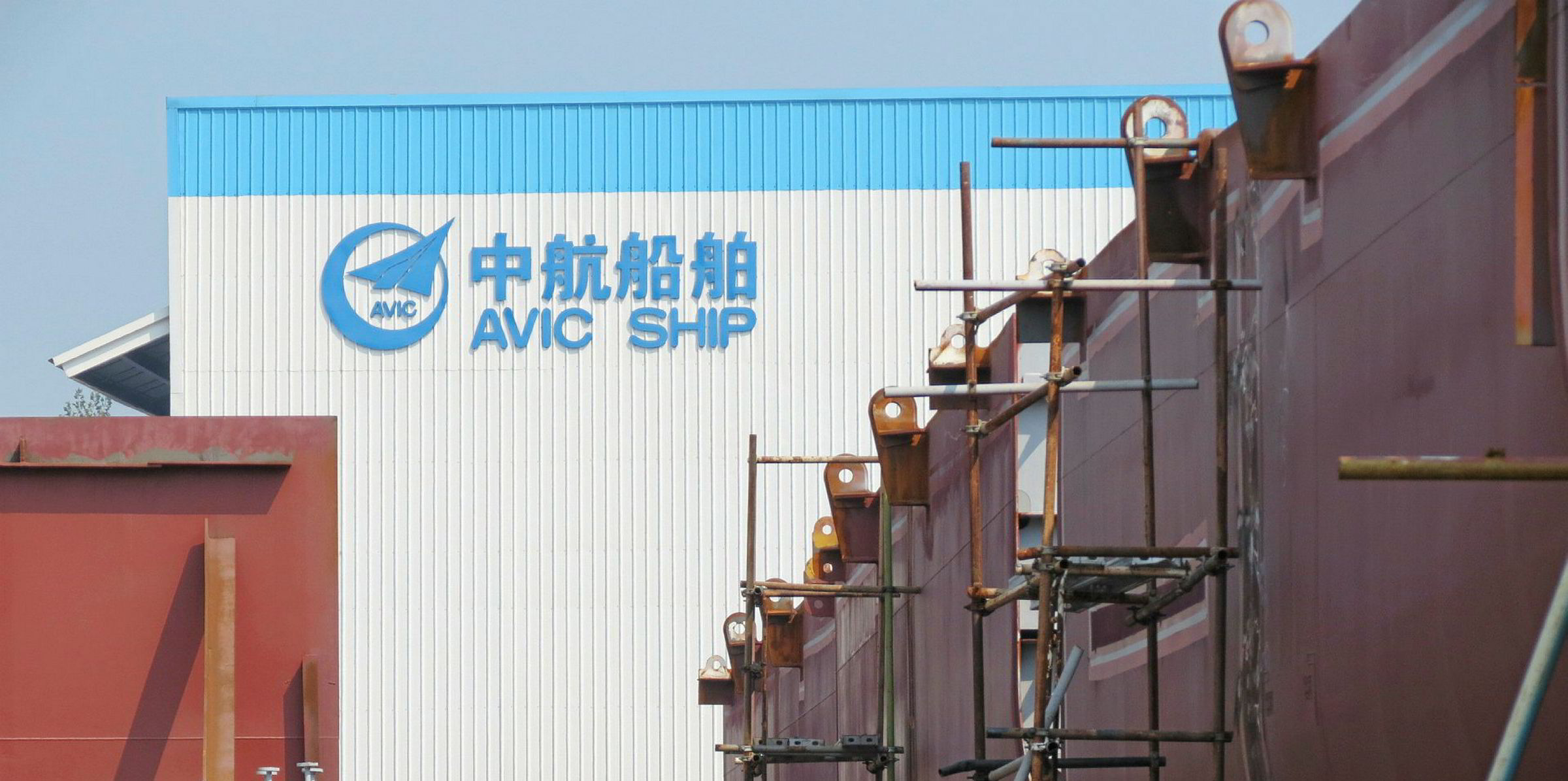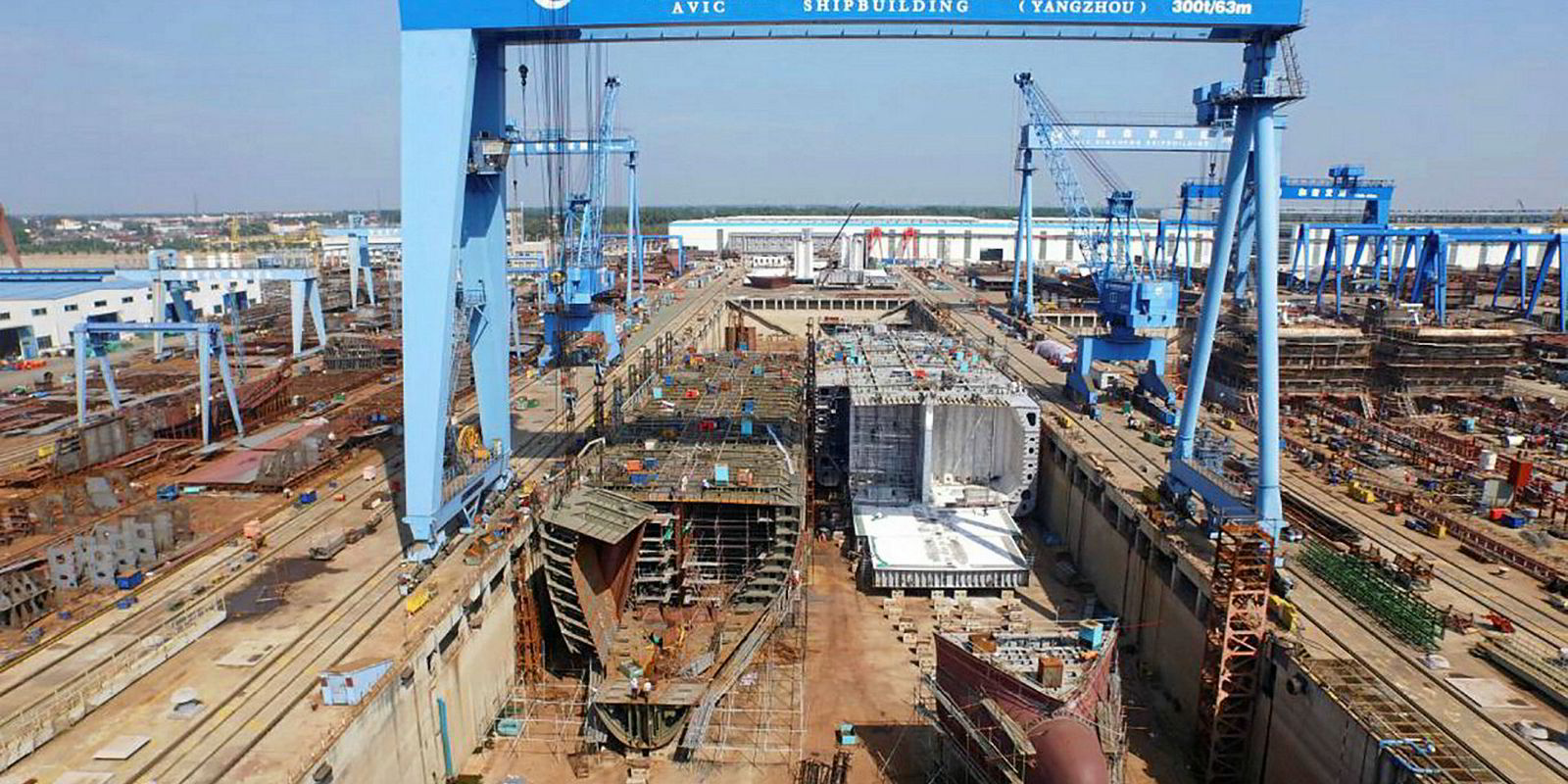Further mergers and strategic alliances, as well as spin-offs of non-core subsidiaries, are on the cards for Chinese central state-owned enterprises under policies unveiled by Beijing.
Shipping and shipbuilding are among industries specifically targeted in a policy announcement by the State-owned Assets Supervision and Administration Commission (Sasac) of China’s State Council or cabinet.
Major ship charterers, including state electricity companies, are also on the list. But China’s three oil majors were not included among sectors singled out for further structural adjustments.
No individual companies were named in the policy announcement by Sasac, but its outline corresponds to several ongoing changes in the state that TradeWinds has previously reported.
These include the long-awaited merger of the giant China State Shipbuilding Corp and China Shipbuilding Industry Corp, as well as the attempt to spin off the shipowning and chemical container logistics unit of Sinochem International.
Sasac acts as sole shareholder of China’s central state-owned enterprises. Its remit excludes provincial or local government-owned businesses, as well as banks and other financial institutions.
The list of companies it controls is gradually diminishing as a result of mergers and occasionally privatisations, but numbered 96 at the most recent official count last June.
Also fitting into the policy outline is the more recently reported plan under which aeroplane manufacturer Avic International would dispose of its profitable Weihai and Dingheng shipyards to another state-owned company, probably China Merchants Group (CMG) subsidiary China Merchants Heavy Industry.
Avic confirmed the takeover negotiations late last year after TradeWinds broke the story of the internal talks.
Sasac — led by Communist Party secretary Hao Peng, chairman Xiao Yaqing and several vice chairmen — made the announcement of planned steps to promote strategic restructuring and specialised integration of major state-owned businesses on 17 January.
Domestic media quoted Sasac spokesman and secretary general Peng Huagang as saying several state-owned industries will spin off some business while developing their core activities.
The goal is to strengthen state corporations by specialisation.

Sectors identified for reorganisation were equipment manufacturing (understood to include shipbuilding), power plants, steelmaking, shipping, building materials and tourism.
Shipping was one of the starting points of the current round of state mergers, along with train manufacturing. But the process has not always been smooth.
Several years into two big restructuring projects — the merger of China Shipping Group and China Ocean Shipping to form China Cosco Shipping, and the folding of Sinotrans & CSC into the larger CMG — the work of integration is continuing, not least on the shipbuilding sides of both merged groups.
Observers also point to personnel difficulties arising from the different roles the internal Communist Party organisation played in pre-merger companies.
CMG had a relatively light internal party organisation with few rank levels, while Sinotrans & CSC had many more tiers of party cadre.
This made for awkwardness when low-level CMG staff were transferred to the Sinotrans side and found themselves with a party rank far above their management responsibilities.
Even before the current round of policy-driven mergers, the creation of Sinotrans & CSC was plagued by years of rivalry between veterans of domestic Changhang Shipping Corp and internationally orientated Sinotrans.




